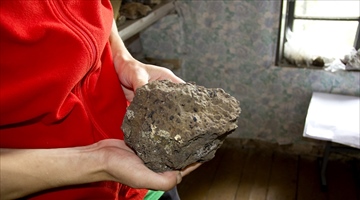TOMSK, Dec 17 – RIA Tomsk. Scientists of Tomsk Polytechnic University (TPU) have found an inexpensive way to synthesize silicon carbide – the material necessary for electronic devices to work under extreme conditions,
the regional innovative portal reported today; this will allow to reduce the
price of electronics operation in the Arctic and in space.
As explained on the portal, electronic devices require the removal of energy
when heated. An aluminum radiator is placed in an ordinary computer, which
diverts energy, but if the device is operated in extreme conditions (for
example, in the Arctic or outer space), it must withstand very high and very
low temperatures.
"When the device is working, the microcircuit heats up to plus 50
degrees Celsius, and in its inoperative state it freezes, for example, in the
Arctic, up to minus 50. This leads to the fact that the radiator breaks off
because of the aluminum expansion from the temperature is high. When heated,
the radiator becomes slightly larger, and shrinks when cooled, and this leads
to system failure", – the head of the TPU Division for Automation and
Robotics Alexander Pak is quoted in the message.
He explains that if to add particles of silicon carbide, which has a low coefficient
of linear expansion, to an aluminum heat sink, it less changes in size when
heated and cooled. Tomsk polytechnicians have developed a non-vacuum method for
the synthesis of silicon carbide, without using a special chamber, a pump, and
without high gas and electricity costs.
© РИА Томск. Юлия Филоненко
"Received silicon carbide we clean, enrich, mix with aluminum and mold
into a tablet a little less than a ten-ruble coin. In this form, it can, for
example, be glued to the radiator with thermal paste. Especially for the study was
developed a program which allows to analyze information about the properties of
the material – 10-20 parameters at the same time", – says Pak.
As a result, he emphasizes, it becomes clear how to obtain material with the
best properties and optimize parameters in order to obtain a quality product
using inexpensive methods "in kitchen conditions". The work is carried out in
conjunction with the laboratory of 3D-modeling based on the School of Computer
Science & Robotics. The project is supported by British Petroleum
corporation.